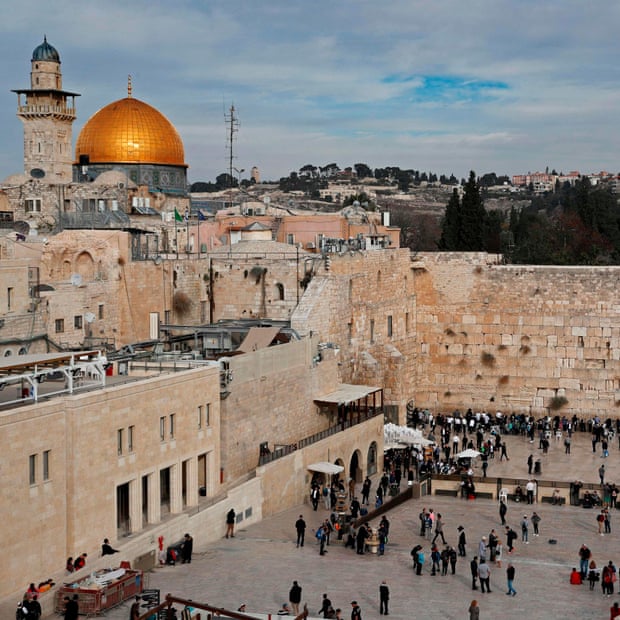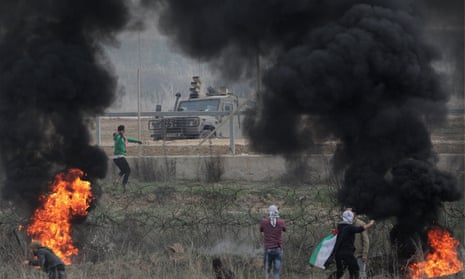The Palestinian health ministry in the Gaza Strip has said two men have died from wounds sustained in earlier clashes with Israeli troops along the border with Israel.
It identified them as Mohammed Dahdouh, 20, who died on Sunday, and Sharif Shalash, 28, who died on Saturday.
Their deaths raise to 12 the number of Palestinians killed in violence in Gaza and the West Bank since Donald Trump announced the unilateral recognition of Jerusalem as Israel’s capital on 6 December.
Most of the deaths have occurred in Gaza, where protesters have been clashing with Israeli forces along the border fence. Forces have used teargas and live fire to disperse the crowds.
Among the dead were two Hamas militants killed in an Israeli airstrike that was carried out in response to rocket fire from Gaza.
Q&AWhy is recognising Jerusalem as Israel's capital so contentious?
Show

Of all the issues at the heart of the enduring conflict between Israel and the Palestinians, none is as sensitive as the status of Jerusalem. The holy city has been at the centre of peace-making efforts for decades.
Seventy years ago, when the UN voted to partition Palestine into Jewish and Arab states, Jerusalem was defined as a separate entity under international supervision. In the war of 1948 it was divided, like Berlin in the cold war, into western and eastern sectors under Israeli and Jordanian control respectively. Nineteen years later, in June 1967, Israel captured the eastern side, expanded the city’s boundaries and annexed it – an act that was never recognised internationally.
Israel routinely describes the city, with its Jewish, Muslim and Christian holy places, as its “united and eternal” capital. For their part, the Palestinians say East Jerusalem must be the capital of a future independent Palestinian state. The unequivocal international view, accepted by all previous US administrations, is that the city’s status must be addressed in peace negotiations.
Recognising Jerusalem as Israel’s capital puts the US out of step with the rest of the world, and legitimises Israeli settlement-building in the east – considered illegal under international law.
